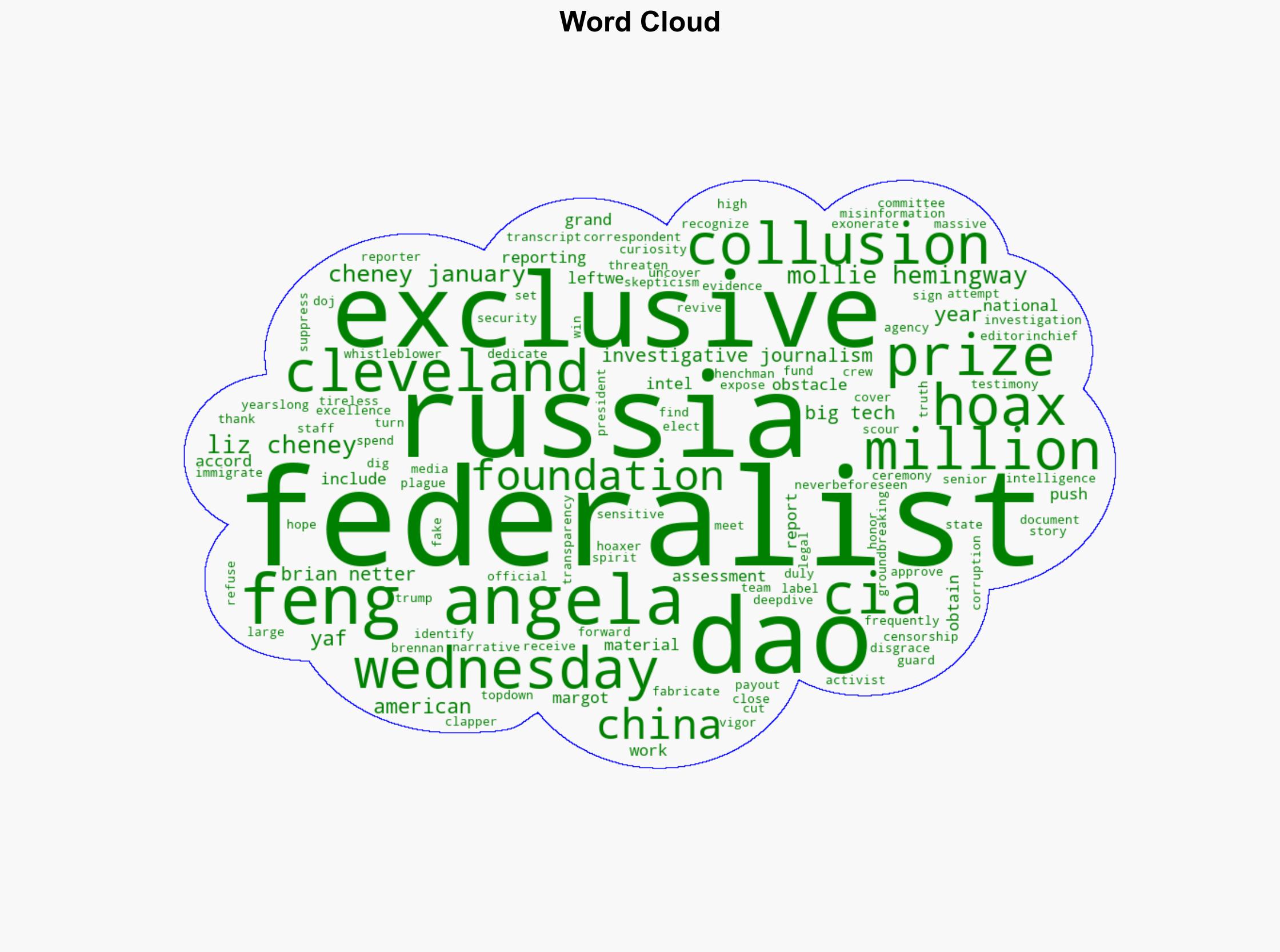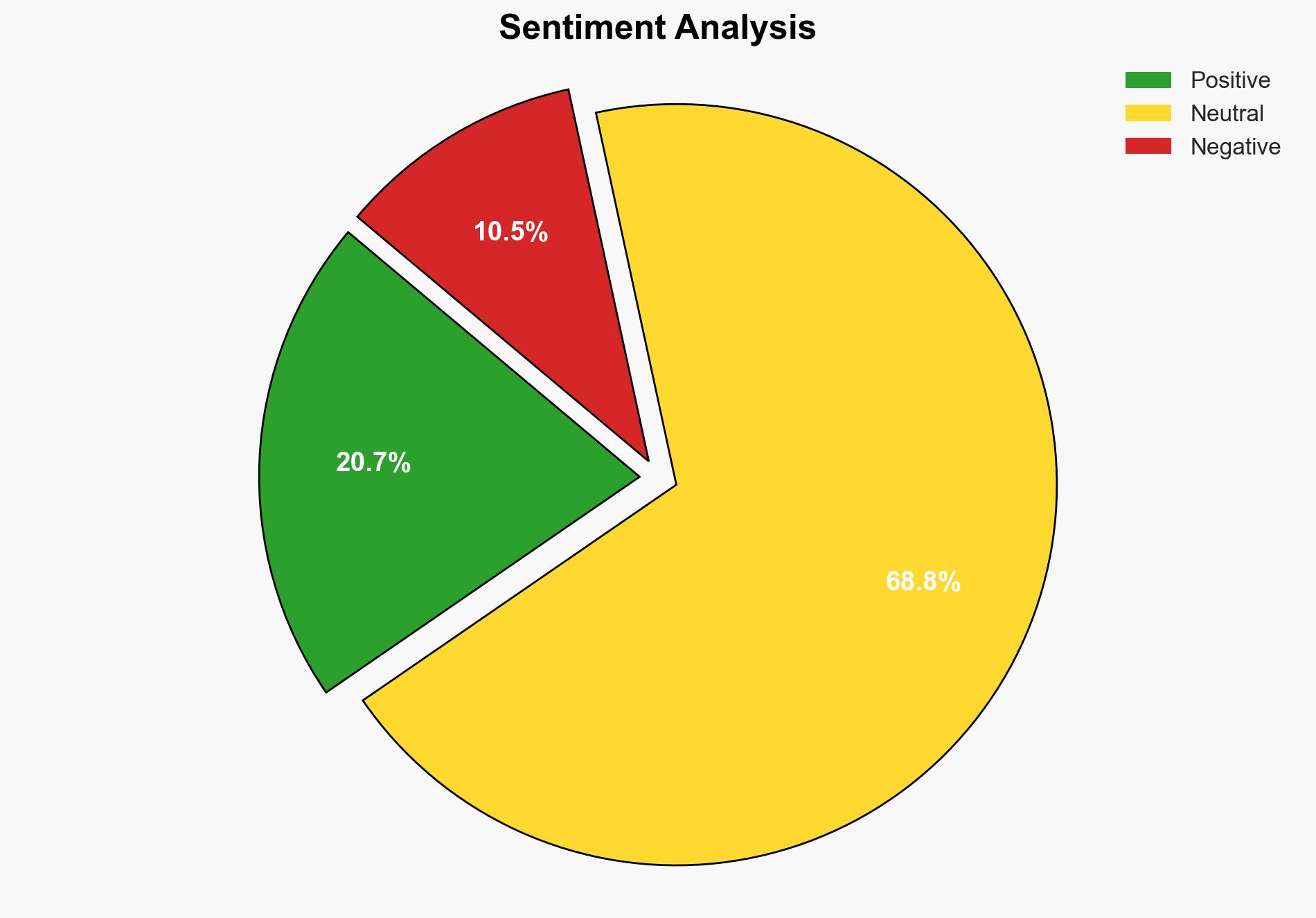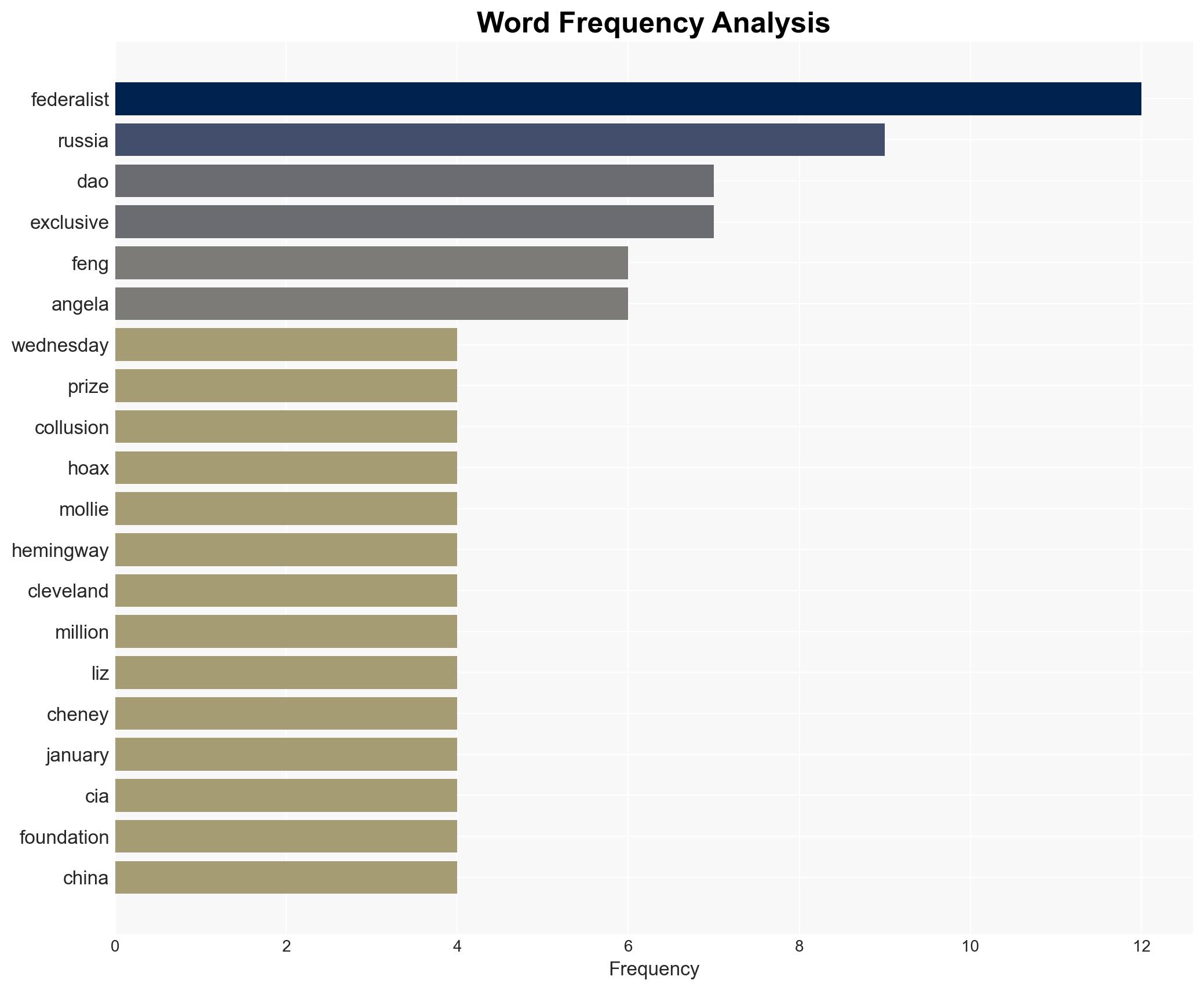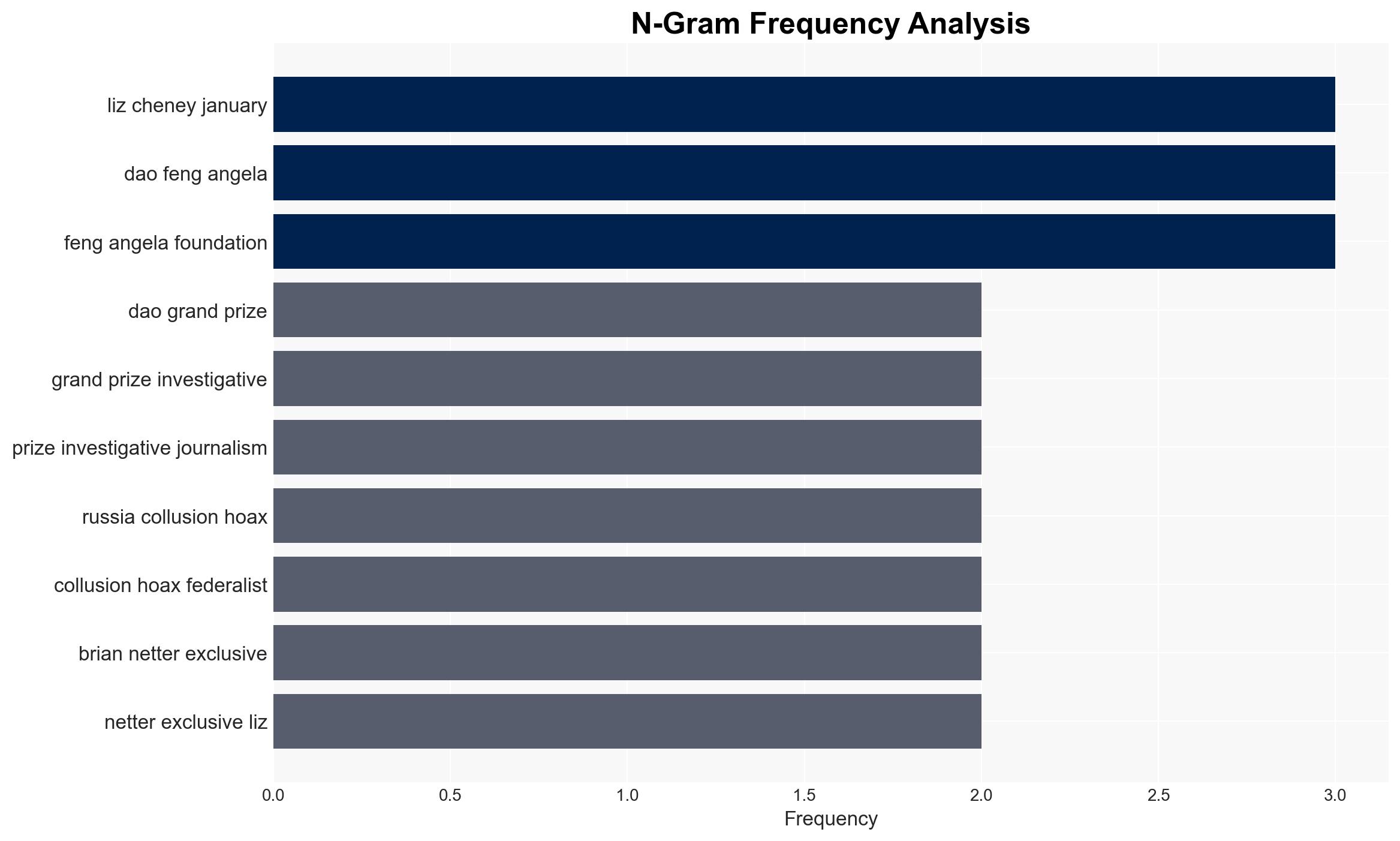The Federalist Wins Dao Grand Prize For Russia Collusion Hoax Coverage – The Federalist
Published on: 2025-11-20
AI-powered OSINT brief from verified open sources. Automated NLP signal extraction with human verification. See our Methodology and Why WorldWideWatchers.
Intelligence Report:
1. BLUF (Bottom Line Up Front)
The Federalist’s receipt of the Dao Grand Prize for its investigative journalism on the Russia Collusion Hoax highlights a significant narrative shift in media reporting on national security issues. With a moderate confidence level, the most supported hypothesis is that this accolade could embolden similar media outlets to pursue stories challenging mainstream narratives, potentially impacting public perception and policy discourse. Recommended action includes monitoring shifts in media influence and public sentiment, as well as assessing potential impacts on intelligence community credibility.
2. Competing Hypotheses
Hypothesis 1: The Federalist’s award signals a growing acceptance and validation of alternative media narratives challenging established views on national security issues. This could lead to increased scrutiny of intelligence agencies and a shift in public discourse.
Hypothesis 2: The award is an isolated event with limited broader impact, primarily serving as recognition for The Federalist’s specific investigative work without significantly altering the media landscape or public perception.
Hypothesis 1 is more likely given the increasing polarization in media consumption and the growing appetite for narratives that challenge conventional wisdom, as evidenced by the Federalist’s ability to secure sensitive materials and navigate censorship attempts.
3. Key Assumptions and Red Flags
Assumptions: The Federalist’s reporting is accurate and based on credible sources. The Dao Grand Prize is a reputable award that influences media credibility.
Red Flags: Potential bias in The Federalist’s reporting due to political leanings. The possibility of selective disclosure or manipulation of information to fit a narrative. The credibility and influence of the Dao Feng Angela Foundation in the media landscape.
4. Implications and Strategic Risks
The recognition of The Federalist’s work could lead to increased skepticism towards intelligence agencies, potentially undermining their credibility and effectiveness. This may result in heightened political polarization and challenges in achieving bipartisan consensus on national security issues. Additionally, the narrative shift could embolden other media outlets to pursue similar stories, potentially leading to information warfare and increased misinformation risks.
5. Recommendations and Outlook
- Monitor media narratives and public sentiment shifts to assess impacts on national security discourse.
- Engage with media outlets to ensure balanced reporting and mitigate misinformation risks.
- Best-case scenario: Increased media diversity leads to more comprehensive public understanding of national security issues.
- Worst-case scenario: Erosion of trust in intelligence agencies and increased polarization hinder effective policy-making.
- Most-likely scenario: Gradual shift in media narratives with moderate impact on public perception and policy discourse.
6. Key Individuals and Entities
Mollie Hemingway, Margot Cleveland, Brian Netter, Liz Cheney, James Clapper, John Brennan, Dao Feng Angela Foundation.
7. Thematic Tags
National Security Threats, Media Influence, Public Perception, Intelligence Community Credibility
Structured Analytic Techniques Applied
- Cognitive Bias Stress Test: Expose and correct potential biases in assessments through red-teaming and structured challenge.
- Bayesian Scenario Modeling: Use probabilistic forecasting for conflict trajectories or escalation likelihood.
- Network Influence Mapping: Map relationships between state and non-state actors for impact estimation.
Explore more:
National Security Threats Briefs ·
Daily Summary ·
Support us





